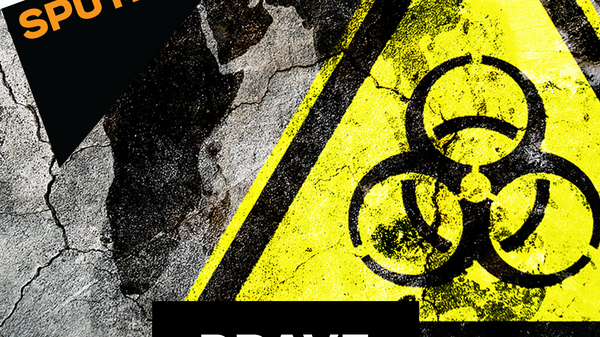In this program, Dr. Vladislav Krasnov, former professor and head of Russian studies at Monterey Institute of International Studies, and the President of the Russia & American Goodwill Association expresses his point of view.
Dr. Krasnov starts the program by explaining why America's reaction to the summit did not come as a complete shock to him: "I have been watching the decline of civility in the United States and pretty much in the rest of the western world since 1991. I was a defector for the Soviet Union when it was a totalitarian, ideological monopolistic country, and in order to find out what was going on in the world, I had to defect. I am grateful to the United States that I was given a home, refuge, and an ability to study different sources, to understand different ideologies, different opinions. At that time, the United States was a beacon of hope because there was a plurality of different opinions. But now, since 1991, I look with more and more despair at what is happening to America, particularly as it pertains to be the leader of the western world."
Dr. Krasnov feels that this is happening because America developed a sense of hubris after seeing that the Soviet Union collapsed. It felt that now, it had won. "I think that the Soviet Union collapsed due to internal problems. They [the Americans] became too proud, and you know what happened to Icarus and his father Daedalus when they flew to close to the sun….This hubris has manifest itself into two new words. One is called neoliberalism and the other is called neo-conservatism, and they presume that both are good for the whole world….The issue is not that Russia is doing something wrong. There are many wrong things in Russia, but Russia is not a totalitarian country, it has tendencies which are leaning towards more plurality, whereas in the United States — and I am very grateful to the United States for giving me refuge — but now the tendency in the United States is towards monopoly and monopoly of opinion. The actual power in the United States has probably now shifted to the media. The power of the media is so enormous that it is a kind of totalitarianism…"
Host John Harrison asks why Jo Biden accused Trump of ‘embracing our No. 1 Enemy' and asks is this what America really thinks, that Russia is America's No. 1 enemy? Dr. Krasnov says that America has decided itself that Russia is an enemy. "I don't think that after 1991 Russia has projected itself as an enemy. If anything, the United States has been more aggressive. The decision to retain NATO was one thing, but when they decided to expand NATO closer to Russia's borders, and thus infringe on Russian sovereignty…it's a natural reaction of any country, whatever the political system, but the people in charge of each country have to take care of the sovereignty of their borders…"
Dr. Krasnov says that a widening gap is opening up between what leaders say and what is reported in the media. "I read the Washington Post every day, I used to when I lived in Washington and I do it now, out of habit, and I know many of the guys who write those things, so I am in touch with both the United States and Russia, and when I watched the event in Helsinki it was apparent that there was one story which is presented by president Trump, and President Putin, and another story which is presented by the media. I also read press releases from the White House; I have to, as President of the Russia America Goodwill Association. I am non-partisan, I am not a political person…my main task is to preserve and strengthen peace which is being severely threatened now throughout the world. The chance of nuclear war and self-annihilation of the whole earth is now higher than ever."
To the question: "how many Americans actually, believe what they read in the press?" Dr. Krasnov answers: ‘Actually many don't believe it. The media is now despondent; they do not know what to do. …I want Americans to try to be decent to one another, including the media people, to try to show some objectivity and for the sake of objectivity, they could downplay their hateful positions towards one politician or another. Let diplomacy win against emotionalism, both leaders have the strong points and weak points, let them negotiate, and essentially I think that the former US Ambassador to Russia, Jack Matlock, who I respect very highly, the one who served in Russia, just before the Soviet Union collapsed, he said that we should go not only back to the classics, to Plato and Aristotle, but also to our own sixth President of the United States — John Quincy Adams. He suggested that the United States should not go abroad in search of monsters to try and destroy them, it should protect its own liberty and not try and impose their notion of liberty on other people…"
Dr. Krasnov referred to the British political theorist and philosopher Edmund Burke who insisted that each country, including the fledgling United States of America (at the time), has the right to go it alone, that each country has the right to choose its own form of government. "We need more democracy in Russia and in the United States", Dr. Krasnov says, "but the moment we say that the whole world has to be democratic, we are undermining the whole basis of civility."
We'd love to get your feedback at radio@sputniknews.com

